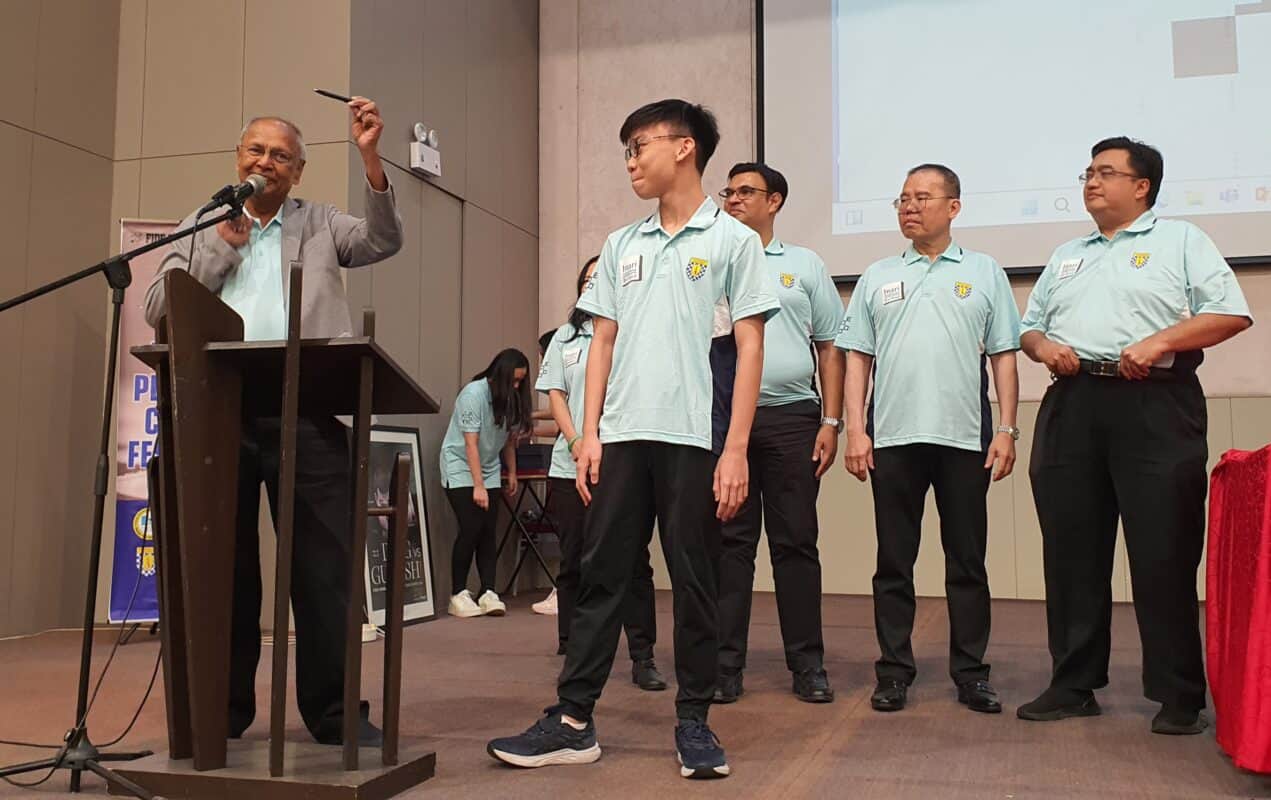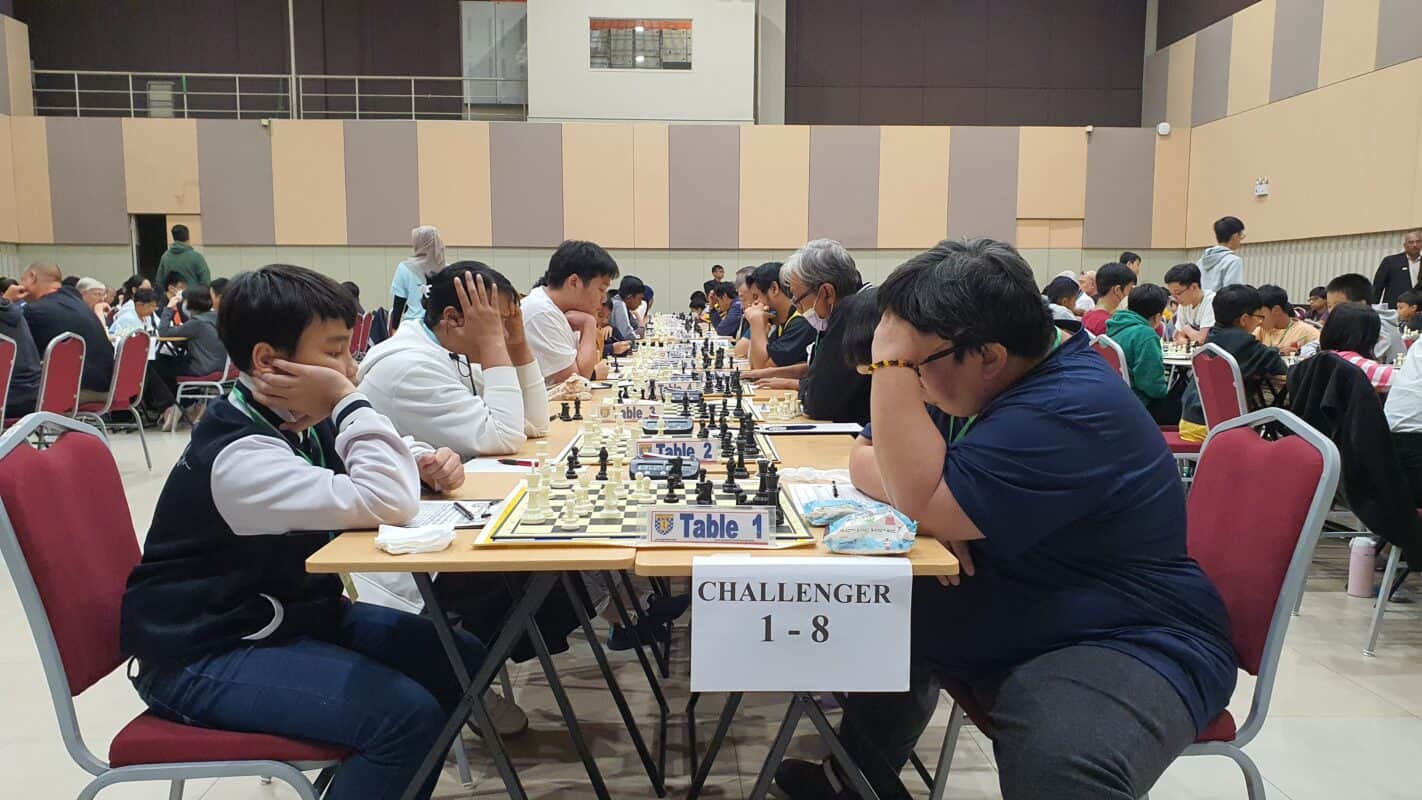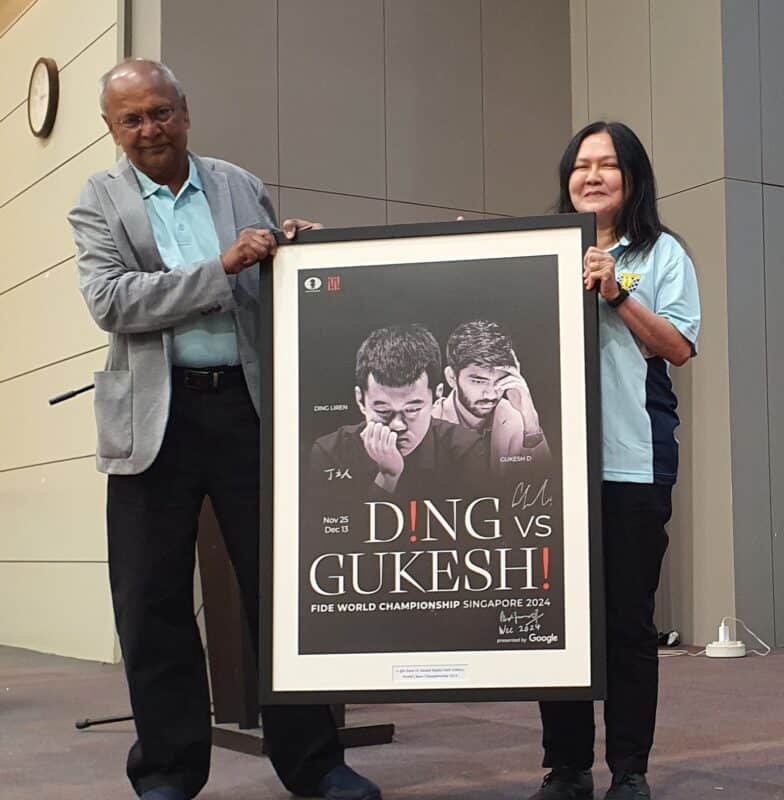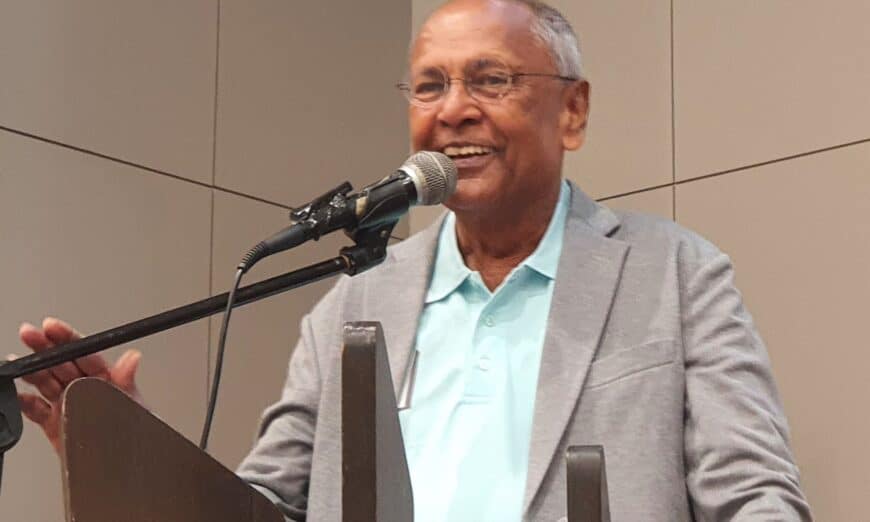MALAYSIAN Abd Hamid Abd Majid was thrust into the global limelight when he was appointed Chief Arbiter for the World Chess Championship between reigning champion Ding Liren of China and challenger Gukesh Dommaraju of India, held recently in Singapore.
With the weight of expectations from the two most populous nations in the world, Hamid carried a significant responsibility. A single misstep could have sparked condemnation from either side.
India-China ties appear to be increasingly distant and tense, troubled by an unsettled border and an unequal trade relationship among others.
While the championship was ostensibly about chess, the potential for political undertones lingered. Such parallels are not unprecedented. When the late legendary Bobby Fisher faced Boris Spassky in the 1972 World Championship, the match was viewed as a proxy battle between the capitalist United States and the Communist Soviet Union during the Cold War.
However, both China and India endorsed the World Chess Federation’s (FIDE) appointment of Hamid as Chief Arbiter and Singapore as the host city for the 2024 championship. This milestone marked the first time a Malaysian held the position and Singapore hosted the event, having outbid Indian cities New Delhi and Chennai for hosting rights.
Reflecting on his role, Hamid, 74, shared his thoughts during an interview with Buletin Mutiara at the ongoing Penang Chess Festival at UOW Malaysia KDU Penang University College.

“I’ve been a chess arbiter for over 30 years. I see this appointment as a kind of trust that FIDE has in me. While it is not a lot of work, it is a very responsible job,” Hamid said.
He recounted a light-hearted moment related to the championship: “There was a joke that Hamid is an Indian but has many Chinese girlfriends. I really don’t care who wins. To me, race doesn’t matter as long as the players follow the rules.”
Hamid admitted to some initial apprehension about the possibility of a 7-7 tie, which would have required a tiebreaker. “I was concerned about managing a tiebreak. It can get messy. With shorter time controls and the pace of fast chess, things can quickly go awry. Fortunately, God answered my prayer, and it didn’t come to that.”
A retired librarian with the Ministry of Defence in Kuala Lumpur, Hamid developed a love for chess as a teenager.
“Because I was not a good chess player, I became an arbiter. I love the game and there are many ways you can contribute to it,” said Hamid, who also served as Deputy Chief Arbiter at the World Chess Championship in Kalmykia, Russia, in 1996.
Asked what it takes to excel as an arbiter, Hamid emphasised the importance of integrity and knowledge.
“First and foremost, you need to know the rules. Secondly, you must strictly follow them – no adjustments based on circumstances. As long as you adhere to the laws of chess, you’re not making a mistake.
“For any aspiring arbiter, honesty and sincerity are paramount. If you take sides in a tournament, it will tarnish your reputation forever. Objectivity is key. Experience also plays a crucial role in becoming a good arbiter.”

Hamid strongly advocates for arbiters from neutral countries to avoid perceptions of bias. He revealed that while he consults other arbiters for consensus when uncertain, he confidently makes decisions when he is sure of the solution.
During the World Championship, Hamid was assisted by Deputy Chief Arbiter Anastasia Sorokina of Australia and Fair Play Officer Aleksandar Colovic of Macedonia.
The organisers implemented stringent anti-cheating measures, including glass panels impervious to Wi-Fi signals, thorough player scans to detect hidden transmitters and checks for metal devices.
In a thrilling finale, 18-year-old Gukesh became the youngest-ever World Chess Champion, narrowly defeating reigning champion Liren by one point (7½ to 6½). The decisive 14th game saw Liren make a costly error that ultimately cost him the title.
Following his defeat to Gukesh, Liren was accused by Russian Chess Federation president Andrei Filatov of deliberately losing the game.
“In my opinion, Liren played as well as he could. But it was not his day. In the last game, he made a child’s mistake. Once that happened, he lost the title. Money you can find, but the title of world champion is forever in history. The fact that he lost by a mere point shows how close the match was,” Hamid shared.
Gukesh earned a remarkable prize of US$1.35 million as the champion, while Liren took home US$1.15 million as the runner-up.
Before the start of the championship, held from Nov 25 to Dec 12, the organisers took Gukesh and Liren to a furniture shop to select their own chairs for the tournament.
Once the chairs were placed in the cubicle, Hamid noticed an incident that unsettled him. “I saw a FIDE-accredited individual sit on Liren’s chair. I immediately told the person off,” he said, recalling the moment with concern.
Drawing a parallel with the Chinese drama series of an Emperor’s chair symbolising authority and inviolability, Hamid said the act felt ominous. “Knowing how treacherous an offence it is to sit on an Emperor’s chair in those stories, where the offender risks severe punishment, including beheading, I didn’t have a good feeling for Liren. Whatever it is, I wouldn’t want anyone to disturb his chair or Gukesh’s chair, for that matter. Later that night, after Liren had lost, I dreamt it was because someone had sat on his chair.”
At the championship’s conclusion, Gukesh and Liren were given pens to sign their scoresheets. As a gesture of appreciation, the Singapore Chess Federation presented Hamid with the pen Gukesh used and gifted Liren’s pen to Sorokina.
Hamid later found a meaningful way to pass on this souvenir. During the Penang Chess Festival opening ceremony on Dec 23, he presented the pen to Penang’s 15-year-old chess prodigy, Poh Yu Tian, the youngest Malaysian to achieve the International Master (IM) title.
“Yu Tian’s victory at the Malaysian Open speaks volumes. At this stage, he is our best player,” Hamid said. “What do I need a pen engraved with the words ‘World Chess Championship’ for? I thought it would serve better as motivation for this boy.”

Hamid also presented a framed poster featuring Gukesh and Liren, which was used to advertise the World Chess Championship, to Penang Chess Association president See Swee Sie. The gesture was in recognition of the association’s significant contribution to the development of chess.
Reflecting on his chess journey, Hamid recalls several memorable and challenging moments as a chess arbiter.
One such incident occurred during an Asian Youth Tournament for boys and girls in Brunei. During the competition, Hamid received a complaint that one of the female players was allegedly a boy. To address the issue, he called the head of the player’s delegation and checked the player’s passport, which confirmed she was female.
However, the complaints persisted. “Two similar complaints against the same girl followed. I then asked a female arbiter from Vietnam to take the girl, along with her mother, to the toilet for a physical verification. When the arbiter returned, she simply said, ‘Play on.’”
Later, after the mother had left, the female arbiter confided in Hamid that the player was intersex, possessing both male and female characteristics. “It was a peculiar situation, but it happened,” Hamid said.
“I emailed the International Olympic Committee to find out what to do. IOC, in a short reply, advised us to follow the passport.
“The young player, just 11 or 12 years old, went on to win her category,” Hamid explained.
Another notable incident took place during a Malaysian Open Championship involving a Chinese Grandmaster. Hamid noticed the player was making frequent trips to the toilet, which raised suspicions.
“We checked him, and he refused to hand over his phone. Players are prohibited from carrying phones during play. When asked to unlock it, he attempted to delete something, but one of our boys from Universiti Malaya managed to recover the deleted content. It turned out to be a chess programme,” Hamid said.
“I banned him from the tournament and filed a formal complaint with the Chinese Chess Federation, which does not tolerate actions that tarnish their country’s reputation and encouraged me to take appropriate measures,” Hamid said.
Throughout his career, Hamid has demonstrated the importance of firmness and fairness in upholding the integrity of the game. His role as Chief Arbiter of the 2024 World Chess Championship exemplifies his dedication and skill, earning him accolades and making Malaysia proud.
Story and pix by K.H. Ong

